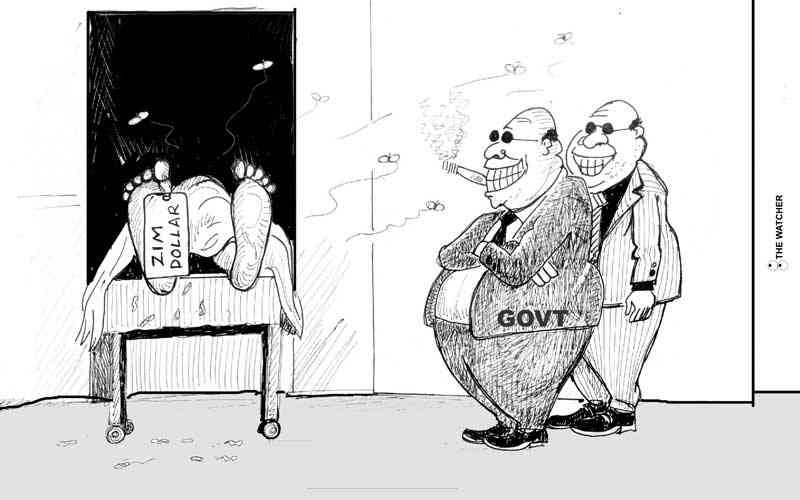
BY PHENIAS SADONDO I MUST admit, when the wetness behind my ears had finally dried and my music discernment was born, Zexie Manatsa was no longer active in the music industry. But the radio DJs still had something to pick from his rich discography.

Time and again they would play a song or two from the legend and I fell in love with many of his yesteryear classics.
When I am away from home, nothing brings me close to home than music. I remember when I was many kilometres away from home, in the populous city of Bandung in Indonesia, worried and homesick, I would open YouTube and search for Zimbabwean artistes.

One of the artistes who brought light in my Luxton hotel room was Manatsa. At some point I invited a Ugandan friend to my room and asked him to join me in listening to the Zimbabwean gems.
Of course, I was disappointed that he did not know any Zimbabwean artiste. I mentioned names like the late Oliver Mtukudzi, whom I thought everyone was supposed to know. He shook his head.

- Chamisa under fire over US$120K donation
- Mavhunga puts DeMbare into Chibuku quarterfinals
- Pension funds bet on Cabora Bassa oilfields
- Councils defy govt fire tender directive
Keep Reading
Thomas Mapfumo? He repeated the same gesture. “Cool buddy, let’s just listen to the music then”, I resigned. And we did that for some hours.
Both of us being teetotallers, we had nothing else to do on that free day. Performing my self-appointed DJ role, I played Manatsa’s songs.
I saw his face brightening and eyes getting bigger. I knew they had hit home. Music is universal after all. “It’s a good one, right?” This time he nodded as I was playing Nyoka Yendara, a beautiful track laden with meaning.
Given the time it was released, this was a song not to be taken at face value. In Rhodesia then, artistes had to be innovative and creative in sending messages without getting in trouble with the authorities.

As they grew artistically and immersed themselves in the politics of the day, they also morphed into complex beings.
That golden generation was renowned for using innuendos, enigmas, cryptic phrases and idioms to package politically charged and sensitive messages which would otherwise earn them jail terms for public incitement.
By then Mtukudzi had Mutavara — which apparently was a mobilisation song, and Tineyi Chikupo came in with Sirivhiya Hande kuMagobo and Vana Venyu. Very few were as blunt as Mapfumo who did Pfumvu Paruzevha, Tumira Vana kuhondo and Kuyaura, among others.
In Nyoka Yendara, Manatsa spoke of the sacred snake, known as ndara in Shona or the Cape file snake in English, which, though rare, is associated with misfortune. But given the depth of the lyrics, one is left wondering if Manatsa was really singing about the actual Cape file snake or he was being allegorical.

He was referring to the colonial government as the uncommon snake? As if to give some clues, Manatsa sang on …Baba vanyadzisei, baba vanyadzisei, vanoda kugara nyika vega nei?’ (God please shame them. Why do they want to dispossess everyone?)
He opened the song by suggesting that some people were going to crush the snake’s head. Ironically, owing to its sacredness, that snake is not supposed to be killed, according to the Shona culture. Didn’t he know? Was this even about the snake? He did not say.
Typical of the artistes of that time, he deferred the burden of interpretation to the listener. But, he made sure the melody, the harmony of the instruments and his matching voice made it easy for the listener to dance while pondering over the deeper meaning of the song.
Although my Ugandan friend’s dancing skills were awful, he still rose and attempted a few moves. When the lead guitar was wandering far and wide with Manatsa’s bass and the rhythms supporting in the background, he tried the Banyankore dance.

“You don’t need to hear the words, you just need to understand the language. After all, music is a universal language”, he finally said.
I smiled knowing I had converted a listener to my motherland’s music. Before he left my room, I played a few more tracks from the legendary Manatsa and other Zimbabwean artistes.
He too was homesick and wanted something to take him closer to Kampala. Such was the mojo that Manatsa’s music had that even many years after hanging his boots, his songs felt like new releases.
They remained relevant despite the changing times. As they say, the more things change, the more they remain the same.
Manatsa’s music was simply unique as was the man himself who pulled a shocker in 1979 when his wedding was hosted at the gigantic Rufaro stadium filled to the bream.
At his wedding, artistes like Mtukudzi, Mapfumo and Chikupo and other yesteryear stars, performed for the guests.
The uniqueness of Manatsa was also laid bare when he rose above soccer fanaticism and composed beautiful tracks for the country’s biggest soccer clubs; Caps United, Dynamos and Highlanders.

In the Highlanders song he showed that his versatility was not just with his bass guitar or his voice, but also languages as he seamlessly praised the Bosso stars in Ndebele.
Some of his songs are as hilarious as they are enlightening.
In Tea Hobvu, a song which would make my other mother — Mai Justin Chigumira — choke with laughter, Manatsa was poking fun at members of a certain apostolic sect renowned for their love for tea and bread.
Legend has it that in their families, everything else can run out except tea-making ingredients. That is inexcusable.
Manatsa also had hits like Chipo Chiroorwa and Chivaraidze, which became a love medley back in the days, Soccer Star Tsuro and Musango Mune Hangaiwa among others.
Perhaps it is in Gore Renzara that Manatsa showed that he could also lead from the back. In the song, he stayed away from the spotlight and left Takavarasha to shine.
The video of the song shows Manatsa, in the back-row — dressed just like the rest of the Green Arrows members — concentrating on strumming his bass guitar in the background, portraying a different image from some artistes who are obsessed with being poster boys.
A few days ago, the legend— who was now a pastor — succumbed to cancer at the age of 78.

As the news filtered in, so did the tributes and kind words from those who knew the man from a close range. Some of us who were born much later knew him for his rich music.
He might be gone, but his contribution to the construction of Zimbabwean music will forever be cherished.
His name is engraved on the eternal wall of fame in indelible ink; “Zex was here!” He will forever be remembered.
- Phenias Sadondo is a natural sciences lecturer-cum-author/writer who can be contacted by email: [email protected] or WhatsApp: +263775875605.











